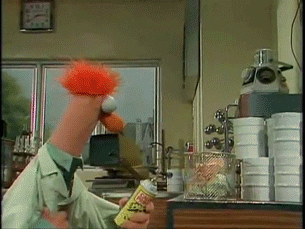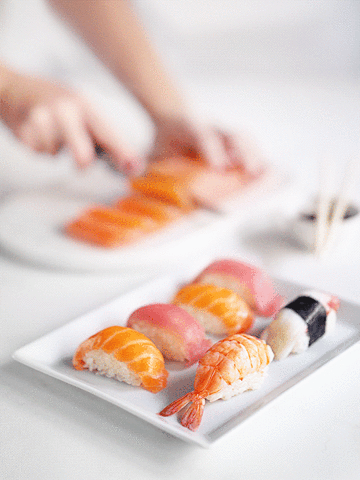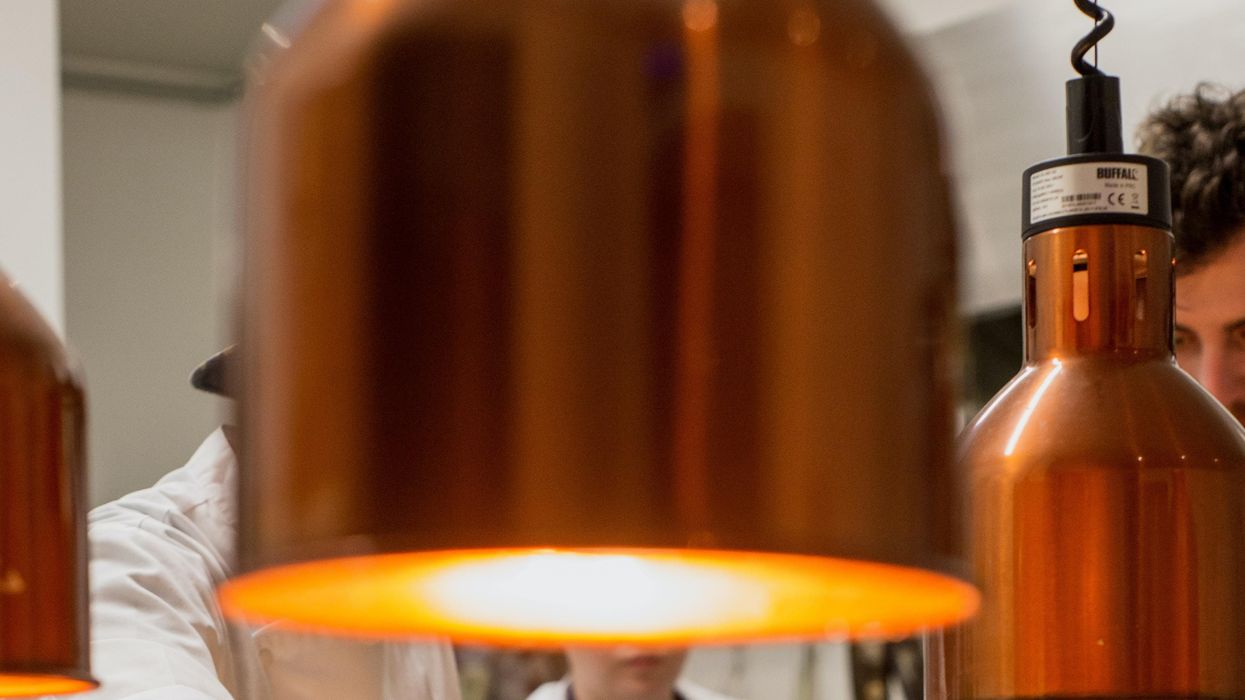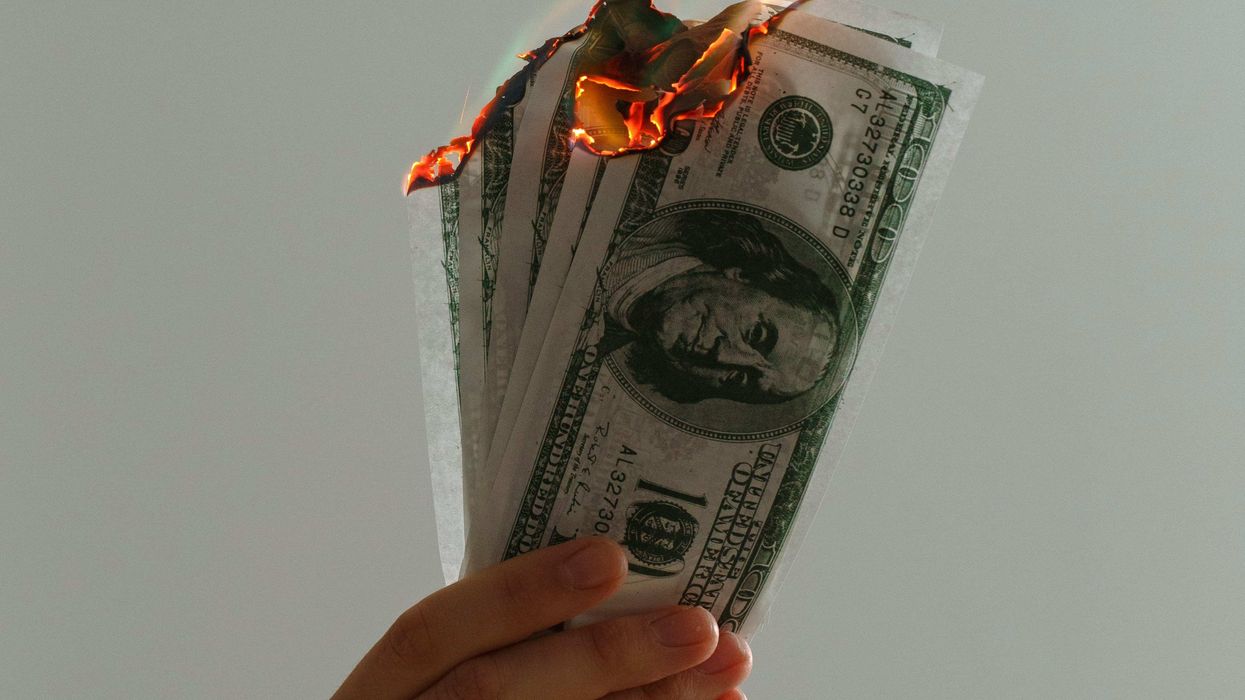Going out to eat is supposed to be a pleasurable experience. It's something we do to celebrate events and milestones, something we do to share time with a potential partner, something we do just for delicious food we don't have to cook (or clean up after.) But that doesn't always mean it's going to go well.
Improper food storage, terrible staff, unsanitary conditions and more can all potentially turn a night out into a night gone wrong.
So Reddit user Squid50s asked:
"Chefs of Reddit, what are some 'red flags' people should look out for when they go out to eat?"
Their responses will definitely have us keeping our eyes peeled the next time we head out for a meal.
The Sprite Nozzle
If there's a self serve soda machine go ahead and take a napkin around the inside of the Sprite/clear-soda-available nozzle. If your napkin comes out pink, brown, or orange SKIP THE SODA.
A Sprite nozzle should come out clear. If it's pink or orange then it's slime mold. If it's brown, it's likely cola. But if the cola nozzle was put on the sprite dispenser and is still brown you know the nozzles aren't being cleaned properly.
Also go ahead and look closely at the ice chute. I see green algae in those a lot.
Germy Gourmet
Sick waitstaff. If restaurant owners encourage their waitstaff to work while sick (or don't help to find a replacement), you can count on getting sick too.
Down In Flames
You might have to be a chef to recognize this, but my red flag is going into a busy restaurant and noticing none of the tables have food ,or not many customer are yet eating. This usually means the kitchen is going down in flames.
One time I noticed this and could see some food slowly stacking up in the window, but no orders coming out. I mentioned it to the server and he replied," I wouldn't suggest ordering food". He brought our drink check and we left. He was tipped well for his honesty.
- jeraco73
 Giphy
GiphyPrime Meal Times
The empty or almost empty parking lot at prime meal times. There is your sign. If you do venture inside, if it is dirty, imagine how the kitchen looks.
Too Much
Not a chef but my best-friend is and he says a large menu. Chances are a lot of things on a menu means that they are frozen. Also, it's difficult to train people to be good at making 40 different things so the quality is going to suffer.
SOME places like Chinese or Indian restaurants that are different combinations of about 30 fresh ingredients are an exception.
Happy Staff
Not a chef, but ex-restaurant manager. How happy is the staff? Do they seem like they like their jobs? If the staff are miserable, you're not going to get quality food or service. It's worth seeking out restaurants that treat their staff well. If they're treated well, they'll treat you well.
- ohno
Bathroom Check
Walk into the restroom first thing. If it looks like cleaning there has been neglected, the kitchen is probably worse.
- blarnbatt
Sushi Smell
I've heard that if you actually smell fish at a sushi restaurant, it's in your & your insides best interest to hightail it out of there.
Sushi chef ringing on this one.
There are many factors that play a role in the development of bad smell, and pure fishiness has more to do with bloodlines (chiai) and blood than anything else. I'm seeing a lot of this and that, but no one is really hitting it on the head.
A fish smells like a fish. There's stages in its breakdown however, that change smell by removing different pieces of anatomy:
- whole fish -
 Giphy
Giphy
Not much to say here, should smell and look like a regular fishymcfishfish. Flesh should be elastic and rebound after touch (not bruising or leaving dents), gills should be bright in color and not gray or dark brown, eyes should not be cloudy, and the scales or skin shouldn't be very slimy.
- head and gut (H&G) -
Scales generally intact (depends on fish, I would scale a bass here but not a salmon), not slimy at all. The fish should have been well cleaned with water and scrubbed then wiped down with a dry rag. The head is removed with the guts and the belly is opened.
And this is crucial boys, you bleed the fish out by making an incision on the spine inside the belly and thoroughly cleaning that out. Then dry it.
- filet -
Filleting a fish is basically removing the spine as it traverses from the dorsal fin to the spine. You do it one side at a time, but the end result is equivalent.
- saku/loin -
This is what's screwing people up real bad here. You still have to pull off the ribs to expose the belly meat, then separate the shoulder from the belly across the bloodline. The bloodline is where the spine USED to be but it's perpendicular to the orientation of the removed spine. It's removed as you separate the two pieces (belly and shoulder) ....
Which finally brings me to chiai. In traditional Japanese and Asian it can get left on. However, it goes bad faster than the meat. Since I'm not great at anatomy I can't really tell you exactly what it is, but to my American palate it tastes terrible alone. Leaving this on will cause it to go bad faster and you can greatly extend the life of the product by removing it before storage. It's generally removed after skinning and predominantly on the shoulder loin.
So let's recap. We've removed the head, guts, bones, scales, skin, blood, bloodline, and chiai. What's left?
Pure fish. It doesn't smell at all except for minor amounts of fish oil. If I catch even a whiff of fishiness while I'm working service with a finished product, it goes in the trash.
Gray meat? Trash.
Slimy? Trash.
Smell? Trash.
But fish, good fish, should not smell like aged fish. Repeated encounters with unclean or relatively unclean surfaces can inspire bacterial growth that cause smell. Which is why I clean my cutting board and wash my hands regularly to reduce cross contact and remove biofilm. Biofilm is what bacteria thrive in. It's like nature's natural petri dish. It's why I remove the slime.
If You Can See The Kitchen Then Look For...
Worked in a bunch of restaurants in college. Many say look at the drop tiles in the ceiling but that is more indicative of the land owner than the restaurant owner. If I can see the kitchen I always look at the cleanliness of counters, floors, walls. What do the rags look like? Where is the trash in relation to the cook surfaces and prep stations. If the grease traps on the griddle exhausts look extremely dirty (should be removed and cleaned nightly). Is there any food out on prep stations possibly getting warm? Should it be in refrigerated stations underneath the cook area or in the walk in fridge?
Pending
For my NYC people "Grade Pending" doesn't mean that the restaurant is awaiting judgement on their health inspection. It means that they failed and are given a grace period to fix their wrongs.
Listen To Your Server
Not a chef but a waitress for several restaurants. If the wait staff recommends you don't get something, TRUST THEM. I used to work at a country club but the kitchen was horrible. Food was rotting in the fridge, raw and uncovered meat was put above uncovered desserts, etc.
If I noticed food going bad or set where it may be contaminated, and a member tried to order it, I'd straight up tell them, "I don't recommend that, but (insert menu item) is great!". Waitresses/waiters don't always do this, but if they do, listen to them! It might prevent you getting sick.
A Green Flag
More a green flag: if you're eating ethnic food and all the customers are of the ethnicity in question then the food is probably going to be freaking awesome.
Online Reviews
Don't put too much stock in online reviews. You have to remember that people are more likely to review after a bad experience than a good one. At the same time, part of my job as a waiter was to write fake reviews for us on TripAdvisor. It was a really decent place too but we definitely drew the wrong crowd and struggled to get happy customers to leave a review. Not saying don't trust reviews at all, just be mindful of it.
Also if you finish your starters for instance and you're really not happy with the food or the service, just pay for what you've had and leave. Most of these nights that are on course to be disappointing are still salvageable and there's no point spending money on a sh!t night because you don't want to be rude.
The Substitution Conundrum
Watch for "No Substitutions".
If the place makes it's own food, they can sub virtually anything for anything else. While they may try to play it up as "Our food is perfect and we refuse to change it on moral grounds", its almost always a sign of "This was made 2 months ago and all we do is reheat it."
- Edymnion
This can go either way. What you're saying can be correct, but there's more to it.
I used to work at a place that had no substitutions, but they made everything to order and as close to "from scratch" as possible. Why did they have the policy?
Because during the rush, people would come in and sub something so much that it wasn't even a menu item anymore. This would throw off food costs sometimes, and make tickets drag out of the kitchen a lot. You know what makes people complain more than anything else? Slow food on their lunch break.
It got to be so bad that the owners (who owned a number of restaurants) bailed on it and sold the place. I was briefly part of management there before it closed and got a look at the books, and they were in the black. The hassle of dealing with the picky yuppies at the location wasn't worth the amount of profit for them (they were in the black, but they weren't deep in the black), something I was told months later when I ran into one of them and asked why they'd sell a profitable business.
- Speedly
It more depends where you are.
I've worked in roughneck area's and mods are super rare.
But when I work in more so called "higher class" area's, people start getting more picky and demanding. Sometimes it's just because the customer wants to sound like they are more better/refined then they are, like wanting as steak "medium rare with no pink inside". By the way, that's literally not a real thing. If you don't want pink inside then it's not medium rare.
- Xatolos
I dunno, I've seen some crazy stuff. Pizza no crust was one that particularly threw me for a loop.
"so... you just want sauce and cheese?"
"yup"
"We can't run sauce and cheese through a pizza oven."
"Oh sure you can, just put it on some foil."
Queue asking the manager what the f they want me to do with this and a rather heated discussion with the guy working the pizza station, and that customer got their tomato sauce and cheese on foil.
Most subs are fine, but people will get way out there and start inventing their own stuff. Another of my favorites was:
"I see you have broccoli as a side"
"Yup"
"and you have chicken strips"
"Yup"
"And I see you have soy sauce over here on the asian hot wings"
"yeah..."
"I want to order chicken strips no fries sub broccoli, and I want it stir fried and tossed with soy sauce, and some ginger if you have it"
And suddenly we're panda express.
The Kitchen Door
If possible, take a good look at the yard/parking lot/whatever the kitchen opens to. Check if it's reasonably clean, if there's rubbish bins or the bags are left on the ground, if the bags look puffy (meaning they've fermented and therefore have been sitting out for a while) and/or with holes in the bottom area (that means rodents). If the bags are left on the ground, that means the kitchen's not the cleanest around, as they will attract all kinds of pests. It's a pretty huge sign that either the chefs don't care or the owner's too cheap to buy bins and / or pay for proper garbage disposal. And I don't think I need to point out that a cheap owner will not buy the fresh, more expensive ingredients if s/he can get away with the cheapest frozen sh!t.
Also, if you're close enough to the door, check the floor for cigarette butts or joints. Lots of cigarettes are not a problem: a busy kitchen is stressful and plentiful cigarette breaks are what keeps a chef or line cook running without cracking under pressure. Few cigarettes may mean the kitchen's understaffed, overworked or both, so they're likely to take shortcuts when cooking or prepping. Lots of weed leftovers... just choose another restaurant.
If it's an open kitchen, pay attention to how the chefs behave with the dishwashers. If they're respectful and treat them like human beings, or yell constantly and mistreat them. A mistreated washer is a HUGE red flag telling of a dysfunctional kitchen, stressed chefs, unacceptable shortcuts, and an idiot in charge, so you'll be better off eating somewhere else.
A Mafia Front
My dad used to work in the restaurant business. We'll get back to that in a second.
One time, my wife and I went to a restaurant and had a very strange experience.
The place was highly rated, but we came in at an odd hour, so it was fairly dead. Like two other tables being served, out of thirty available. When the waiter comes to take our order, they have a list of specials longer than the regular menu.
 Giphy
Giphy
The strangeness starts a little after that. We notice that there's, like, fifteen or twenty extra wait staff. Despite this clearly being a time of day that only needs a skeleton crew. Most of them are just, like, standing there. Not hanging out chatting, like happens at normal restaurants during a lull. Just standing there like they're expecting sometime to require their attention. But like seven people doing that, for three tables.
Somehow, despite there being thirty goddamn waiters for five people, we have terrible service. Despite seven people just watching stuff, no one checks in on us. Our food takes forever to come out. The waiters that are walking back and forth don't walk near or see us, so it takes us five minutes to flag down a manager. Some of the waiters may have had poor English as well, despite this not being an ethnic restaurant, although I may be mis-remembering that part. The managers promises to find out what's going on with our food.
The manager brings out our food. He tells us that he found it, since it was ready, but no one had brought it out. Because I guess all of the twenty waiters had more important things to do like standing around seeing if anyone needed salt or a napkin? How can I need salt if I don't have my food yet?
After some serious discussion, my wife and I conclude this must be a mafia front. All these people must be standing around appearing to be gainfully employed for money-laundering purposes. If the restaurant claims to be very busy with cash transactions during this time, the IRS will be suspect if there aren't enough payroll taxes to support waitstaff. So, they have real waitstaff. Maybe these people have extra duties on the side, not during business hours. Or something.
A few weeks later, my wife and I share with my dad our story of this ridiculous restaurant.
"First of all," we say, "the list of specials was like a mile long!"
"That sounds like it was a front," he says.
We are flummoxed. "OK but like... I mean, yes, it definitely was... but we didn't even get to the sketchy stuff!"
My dad explains: Restaurants need a supply chain. If something's on the menu, the restaurant needs a dependable source for those ingredients. They need to have it in stock, fresh, of acceptable quality, daily. Chefs spend a lot of time and effort sourcing ingredients. A good part of the Food Channel is spent in markets and whatnot.
If most of the menu is variable, then their supply chain is "my cousin has a box of fish that he says fell off the back of a truck, I guess halibut is on the menu today!" This is a reflection of their business practices in general.
So now we know: If the list of "specials" is longer than the menu, then it's a mafia front.
"Side note..."
Sous chef of two years (which isn't very long) at an Artisan Sausage Shop which is well respected. So other head chefs at local places come by and feel comfortable talking shit about other establishments and different chefs have some similar things to say.
Mainly in sushi restaurants if you go for sashimi/nigiri/sushi and if the meat isn't on that lil clear cold bar where they showcase the various raw fish, an hour or so after open, then that means the chef is lazy and hasn't prepared the fish properly so that it is preserved at a proper temperature. Says a lot about the laziness of chefs working there and the managers keeping tabs on them. Especially sketchy if you're in a land locked city/town and you know the fish is almost always frozen.
Oh also bathroom cleanliness will tell you a lot about how they stay sanitary.
Side note, expect your food at 'nicer' restaurants (30+ per person) to be touched by chefs without their gloves, meaning their bare hands and they sometimes won't wash their hands for an hour or so. So lots of hands touching food and then other food so on. Freaks some people out cus if you've worked in service industry you know chefs can work high intensity during rush and they be getting swamp ass and itch their ass subconsciously and then plate your food.
"It's quite obvious..."
The sauce tops. It's quite obvious if it's been cleaned or not. Chances are it will tell you if the bottle is sanitary.
"After one health infraction..."
I worked in a high end seafood restaurant one summer in Vancouver. After one health infraction, they stepped their game up and ensured everything was fresh and all kitchens were cleaned top to bottom every night. I started as a dishwasher and move up to prep-cook. They had like eight of us stay one or two hours after closing to deep clean the kitchens. We would remove all the overhead vents, clean every seal on every fridge, remove things from shelves to clean out. They would check every night meticulously to ensure the kitchen was 100% clean before we can leave. They of course, paid us extra and we received a portion of the tips. I was pleasantly surprise the amount of time and detail they would undergo. Pride in every detail was made known and it only helped the business.
If a restaurant has a theme to it and you walk inside to find that the inside doesnt even match said theme then that probably means they dont know how to run a restaurant.
"I have worked in diners..."
I have worked in diners for over half my life. Look at the condiments on the table people. If they are an unkempt mess, are grimy and look old then the kitchen is this way too. Nobody cares in this joint.
"The food may not be horrible..."
When they have a large menu with different cuisines. Like, if it's an Italian restaurant, it shouldnt be selling burritos. The food may not be horrible but if it's not focused, it ain't gonna be the best thing either.
"It's just been marinating..."
When you see servers walking around with the ticket presenter shoved in the back of their pants, just know that they've had that same ticket presenter since they started working there It has never, ever, been cleaned or washed in any way. It's just been marinating in ass sweat.
"For instance..."
Health inspection scores are really based on the individual inspector. They all have their personal "pet peeves" that they will flag and other things that they will ignore. They can be wildly inconsistent. For instance I had a health inspector for about 2 years who never gave me below a 98. She had a child and took some time off. The inspector taking her place came in and acted like my restaurant was a dump. Gave me a low score and even took two points off because he didn't think the lights in the kitchen were bright enough. I hadn't done anything differently.
Then I got another health inspector that was filling in and I told him that I got brighter bulbs to solve the light problem. He said "what?? You were docked points for the lights?? that's ridiculous!" Then he took points off because I was reusing pickle buckets to store dry goods in. I consistently kept my place very clean. Yet my score would vary depending on which inspector showed up. It was beyond aggravating.
"Investment in good staff..."
For me it is if the design of the restaurant looks really fancy and they invested massively in furniture and such. But the waiting staff has an average age of 19-20. For me it is a classic mistake that loads of restaurant make nowadays. Investment in good staff is way more valuable than looks. Even though a qualified and talented restaurant staff is hard to come by, in the Netherlands at least.
"Look for places..."
Big menu means it's highly likely the food is from the freezer. Look for places with a small(ish) menu and the food should be fresh.
"Don't ever go..."
Dont ever go to a restaurant that's about to close in 30 minutes. Many start cleaning and all the dust and cleaning solution is making its way around the food.
"It's literally all I handle..."
Sushi Chef here, please stop eating at seafood restaurants if you have a severe allergy to fish. It's literally all I handle all day and having to properly sanitize my station in the middle of the weekend rush is the last thing I wanna do.
"If you're not willing..."
If you go out for sushi, please stay away from sushi tracks. They are very sketchy and having sushi just sitting out to get warm is not good. Fish will always be expensive, if you're not willing to pay the extra few dollars for the good stuff, stay away from all types of raw fish.
"I generally stay away..."
Chef here...I generally stay away from meals that seem out of place or dont have some of the same ingredients as other dishes. Product for the not so popular items may not be as fresh. For example...tuna salad at a gas station deli. You know they're not selling enough of that for it to be fresh everyday.
"Only an idiot..."
Actual former chef here. These comments saying, "don't eat (whatever food) on a (day of week) because it's leftovers..." This is called utilization. Specials are just that. Things that we'd rather sell than throw out. Those of us who actually know what we're doing, carefully cool down and store things so they have as much menu life as possible. Only an idiot would throw away perfectly good, saleable food if it didn't sell on the first night.
"There's literally nothing..."
If you're gluten free, for whatever reason, please don't go to a "from scratch" Italian restaurant.
Please.
There's literally nothing we can do to get that crap out of anywhere. Thanks to the flour, it permeates the air.
"If there's a funky smell..."
If there's a funky smell that's even slightly (or stronger) urine like, the restaurant probably has a rodent problem. Best to leave.
"What cleaning jobs..."
Overworked staff. What cleaning jobs do you think are getting missed if staff are far too stretched and or unhappy at work?
Want to "know" more?
Sign up for the Knowable newsletter here.
Never miss another big, odd, funny, or heartbreaking moment again.
















